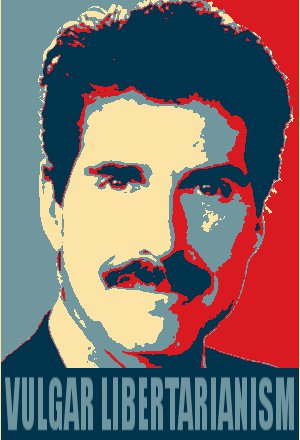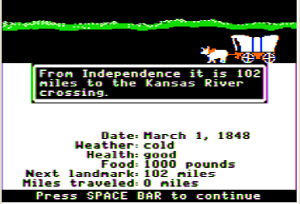Here are some comments I recently posted in reply to some of the commentary on yesterday’s Freeman column. I repost them here because they are long and detailed enough that they may be of some independent interest.
In an early comment, John Irby writes:
If it was so that medical care and mutual aid was so easy to come by, then why was their a perception that the poor and elderly were dying sick in the streets?
It depends on what period this “perception” is supposed to apply to.
If you’re referring to the heyday of the mutual aid societies in the late 19th century through the 1910s, the answer is simply that this “perception” exists because statists often promote bogus perceptions of crisis without much supporting data, in order to put over the need for their desired programs with the politicized public. Some actual data on the circumstances faced by the poor and elderly, rather than impressionistic and sensationalistic “perceptions” would be useful here. I have some actual data on how available these arrangements were to ordinary workers, which I present briefly in the article — typically between 20% and 50% of workers in major urban areas in English-speaking countries were covered, and these numbers were rapidly rising in the 1900s, prior to the political campaigns to eradicate the associations and raise medical prices. If you want a fuller presentation of the data, I recommend David Beito’s excellent book, From Mutual Aid to the Welfare State, especially Ch. 6, “The ‘Lodge Practice Evil’ Reconsidered.” If you have actual countervailing data that tends to cut against the conclusion I draw, feel free to present it, but if what you’ve got is just ill-specified “perceptions,” well, so what?
If, on the other hand, you’re referring to the decades leading up to the passage of major government entitlement programs for the “poor and elderly” — programs like Social Security (1935) or Medicare (1965), then you need to keep in mind that these programs were introduced and rolled out decades after the non-corporate, grassroots, free-market alternatives that I discuss in the article had been deliberately dismantled by politically-driven campaigns — coordinated mainly by establishment medical guilds, using their power over government licensure of practitioners as their primary means of enforcement — to drive them out. (The blackballing campaigns against lodge-practice doctors in the U.S. ramped up in the mid-1910s and succeeded in forcing dramatic declines in lodge practice starting in the 1920s. See Beito, p. 124 et seq.) So, to the extent that government could point to a crisis of health care accessibility or affordability for the poor and elderly, just before the New Deal and Great Society transfer programs were created, it’s because government was pointing to a situation where the kind of grassroots, consensual social organizations that had made health care accessible to the poor and elderly had already been rubbed out by government in the decades prior. Once again, an example of government breaking your legs, then handing you crutches, and telling you, “See, without me you couldn’t even walk!”
John:
However I am not ready to drink the cool-aid …
I don’t want to be a dick about this, but can you not use that phrase when what you mean is I don’t accept your delusional beliefs?
It’s an offhand jokey reference where the punchline
is the murder of 276 children, and the senseless deaths of almost 1,000 people, just 30 years ago. Jokes like that suck.
John:
… and say that we need to rid ourselves of the FDA or of medical accreditation. Kevin Trudeau is a salesmen of alternative cures for a variety of ailments [etc., etc.]
The existence of quacks and dangerous drugs today, in spite of already-existing heavy government regulation, seems like an odd argument for relying on government regulation as a means of getting rid of quacks and dangerous drugs.
In any case, the free-market position is not that we need to get rid of drug testing or medical accreditation. The free-market position is that the state should not force any particular scheme for drug safety or efficacy testing, or for medical licensure, on you or me without our consent.
The important thing, from the standpoint of individualist principle, is that, if you want to pay for snake oil without any consideration of demonstrated effects, you should be free to do so. And if I want to spend money only on drugs that scientific research has demonstrated to be safe and effective, or on doctors who have garnered the recognition of their peers as honorable and competent professionals, then I should be free to patronize only those that consensual consumer-protection outfits and professional medical institutions have approved.
In a freed market, there will certainly be both drug testing and medical accreditation; it will simply be drug testing and medical accreditation that relies on informed choice, or education and persuasion, rather than on the force of the law. How do I know that such institutions will exist? Well, of course, because they already exist, or have existed in the past. Before the modern prescriptions system was created in 1951, the role of objective watchdog for drug safety and efficacy in the U.S. was handled by the American Medical Association (which maintained a private drug-testing laboratory and published annual guidebooks of drugs that received their seal of approval). They provided a system of voluntary, independent oversight that worked — until government “fixed” it.
Similarly, nobody that I know of is proposing that existing methods of accrediting doctors or other medical practitioners be abolished. Where would you get such a ludicrous notion? There’s already plenty of non-governmental means of accrediting doctors — among them, well, the doctoral degree in medicine, which is issued by medical schools and still would be issued by medical schools in a freed market, based on standards of training and mastery. Similarly for nursing degrees, certification by professional associations like the AMA, etc. What radical individualists oppose is not accreditation, but state licensure laws, which add an unnecessary layer of politically-directed licensing restrictions on top of already-existing, voluntary professional standards and certifications within the medical profesion. The problem with this is, first, that they are coercive, and hence violate the rights of patients and practitioners; and, second, that the standards for governmental licensure are imposed through political decision-making and legislative fiat, rather than being determined through open debate and consensus over best practices within the health care market.
As a result, they often use the force of the state to shut down debate and impose requirements that have nothing to do with medical fact and everything to do with political pull — as when state licensure laws were used to attack feminist women’s health centers, midwives, or other alternative medicine providers, even without any evidence that any identifiable patients had been harmed or were even dissatisfied with the service. Or, to return to our original topic, when state licensure laws were used to blackball doctors who were providing perfectly adequate care, but who were seen as “underselling” (that is, providing competent care at costs that were affordable by ordinary working people) during the political campaign against lodge practice in th 1910s and 1920s.
John:
The truth is that of all the industrialized countries, America is the only one with a private for profit system, …
Didn’t you read the article? “America” doesn’t have a private health care system. It has a government-imposed health care system. The market is dominated first, by direct government control, and, second, by the operations of a handful of corporate privateers who depend entirely on a combination of government subsidy and government-imposed barriers to entry for their day-to-day operations and long-term strategy.
A freed market in health care would look completely different from the “system” that you and I face today.
In a later comment, a different John — John de Laubenfels — writes:
Would you give companies that research and produce new drugs NO protection from competition,
You are correct that I do not believe that protectionism for pharmaceutical corporations is an adequate argument for imposing government-granted monopolies.
If you want to “protect” pharmaceutical companies’ existing business models, do so on your own dime by boycotting competitors and directing your money to first movers. (Hey, it worked for Tolkien.) But I’m not nearly so invested in protecting current business practices in the pharmaceutical industry, and I’d rather that you don’t use government monopoly to force your protections on my pocketbook.
John de Laubenfels:
starting the moment someone gets ahold of the new drug, analyzes it, and creates a knockoff? Nothing for all the money the original company has spent doing trials? I don't think that such a system would be either fair or likely to motivate companies to produce new, life-saving drugs.
On the cost of doing drug trials, of course, in the same sentence where I advocated the abolition of patents I also specifically stated that I supported the abolition of the FDA, which would dramatically reduce the compliance costs involved in developing new drugs and bringing them to market. So I don’t know what you’re referring to here. (Of course, if companies want to do internal testing they can do so, but in voluntary independent oversight systems, the costs of running trials are typically assumed by the independent watchdog organizations themselves, as part of their institutional charter.)
However, if it turns out that it’s no longer profitable for big, for-profit corporations to do medical research, then — horrors! — it may just turn out to be the case that medical research has to be carried on by non-corporate or not-for-profit institutions. But I hear we have some of those. And I’m not typically impressed by broken-window arguments that fail to take any account of the value of the unseen alternative uses to which money might be put, if not for the coercive government intervention.



